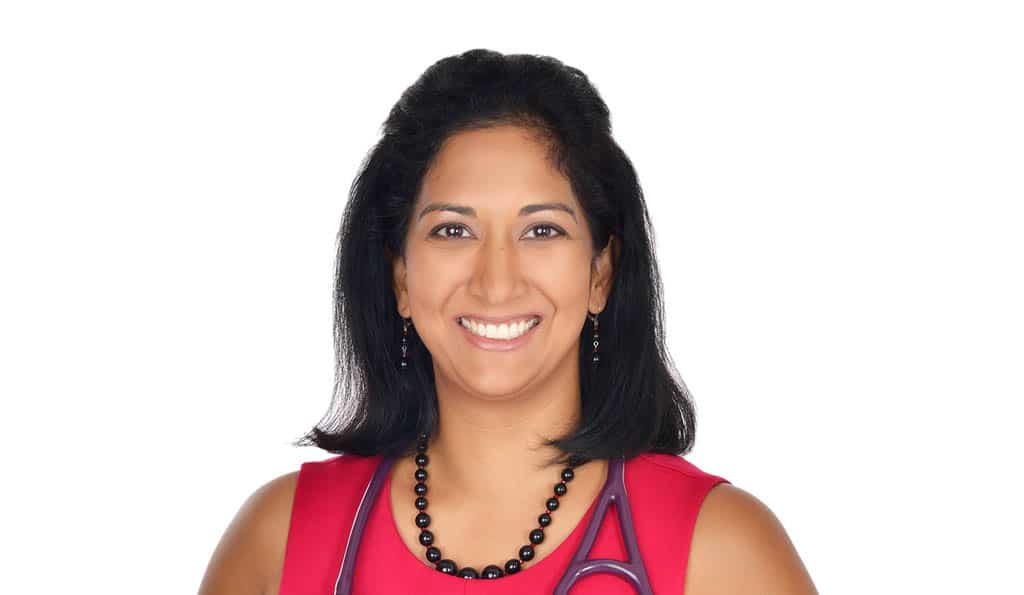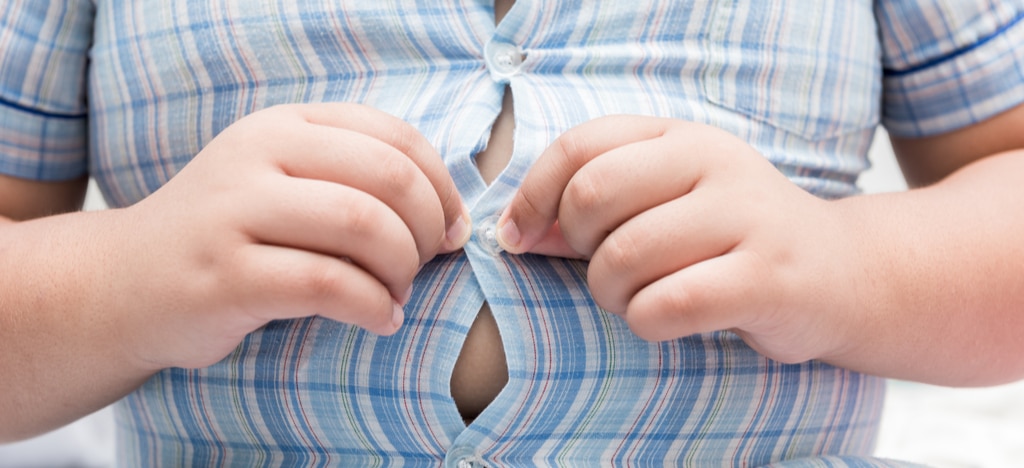We asked Dr Arti Jaiswal, Paediatric doctor at IMC Paediatrics and Vanessa McNamara, paediatric dietitian from The Travelling Dietitian about how to approach healthy eating in children and the sensitive issues around weight.
Q. Are the words ‘overweight’ or ‘obese’ even relevant for children? Are they just too young for these words to be valid?
Dr Arti: Because of the negative connotations of those words, I don’t like to use ‘obese’ or ‘overweight’ to describe children. In children, we use BMI to measure their risk of obesity as an adult.
Vanessa: I agree. I believe it’s really important to avoid using words like ‘overweight’ or ‘obese’ around children. They will have plenty of time to be exposed to these ‘labels’ as they get older. These words have a very negative connotation and provide too much of a focus on weight and not enough on health.
Q. What does a ‘healthy weight’ mean when it comes to children?
Vanessa: This is a very broad term as what is healthy for one child may not be ideal for another. Just like adults, children come in lots of different shapes and sizes. Growth charts are used to track the growth of infants, children and adolescents so rather than focusing on the number, I prefer to look at how their weight and height is changing as they grow. Ideally, a child’s weight will be no more than 2 major centile lines away from their height on the growth charts.
Dr Arti: A healthy weight is one that follows a child’s growth curve. And if we are looking at specific numbers, then we will measure the BMI to decide where a child’s weight for height is.
Q. What behaviours should parents encourage?
Dr Arti: Parents should encourage healthy foods and active lifestyle. We should model this for our children as well. Encourage at least five servings of fruits and vegetables per day with limited juices/sugary beverages. Also, kids should be outdoors or doing activities at least one hour per day and limit screen time (ideally less than one hour per day). I can’t stress enough the importance of free play for children! Also I encourage families to go food shopping together, allowing kids to choose fruits and veggies to try and to have kids participate in cooking meals together with the family.
Vanessa: Encourage every child to have a positive relationship with food. This includes getting them to interact with food as early as possible by playing with it and making a mess. It also means involving them in some of the decision-making processes around what nutritious meals and snacks the family will have and asking them to help prepare the food. Meal times should be an event that children look forward to so they can enjoy and appreciate good food in a relaxed setting.
Q. What behaviours should be discouraged?
Dr Arti: As with most things in life, anything in excess is to be avoided. Cookies and chips and candy are not the enemy, but should really be limited in amount. Also, I don’t recommend force feeding. I know it’s hard for us as parents to want our kids to eat healthy, but each person is an individual who has likes and dislikes. If your child doesn’t like fish, don’t force it, rather offer a simple alternative like fruits or vegetables. We have to remember that like us, children have their likes and dislikes.
Vanessa: Constant snacking and grazing can have a major impact on a child’s weight. Parents need to set boundaries around when children eat – preferably 3 meals a day + 1-2 snacks at set times. This doesn’t mean we don’t want to them to follow their hunger but by sticking to set times, this helps them to regulate their appetite and eat accordingly. They will then be more equipped to decide how much they will need to eat to eat to get them through to the next meal or snack.
Q. If a parent is concerned about their child’s eating habits …when would you suggest they seek external support?
Dr Arti: I discuss eating habits at every annual visit to make sure there aren’t any concerns, but you should bring it up with your child’s doctor at any visit if you are concerned.
Vanessa: If a child’s weight moves more than 2 centile lines from their height on the growth charts this is an indication their growth is not ideal. If their weight suddenly increases or decreases or if you feel they are lacking major nutrients and avoiding major food groups, it’s worth speaking to your doctor or dietitian about this.
Q. How much are parents role models when it comes to eating?
Vanessa: Parents modelling good eating behaviours is crucial to a child developing healthy eating habits. We need to eat the way we want our children to eat to help them trust new foods and feel confident eating a variety of textures and flavours. Also, if we follow our hunger and fullness signals and eat mindfully, this will help guide our children to do the same.
Dr Arti: Parents are role models for our children, from eating to activity to screen time to how we treat others. We have to be mindful in what behaviours we want our kids to follow.
Q. Comment on these Myths about weight problems and obesity in children:
- Myth 1: Childhood obesity is genetic, so there’s nothing you can do about it.
Vanessa: False. Weight and height may be genetic but eating habits are learned. Constant exposure to a wide variety of nutritious foods is the first step to developing a healthy eater.
Dr Arti: We cannot change our genes, and everyone has different body types, but we can teach healthy eating and active lifestyles to our children and reinforce that everyone is different.
- Myth 2: Children who are obese or overweight should be put on a diet
Vanessa: I don’t believe children should ever be put on a diet, unless they have a specific clinical condition that warrants it. We can help a child manage their weight by providing plenty of fruit and vegetables, lean sources of protein and nutritious wholegrains, by keeping high fat and high sugar foods as ‘sometimes foods’ and by encouraging children to listen to their hunger and fullness cues.
Dr Arti: I don’t believe children should ever have to diet. We need to promote healthy food options and active lifestyles. Kids should know healthy food versus sometimes food versus special treats.
- Myth 3: It’s just baby fat. Children will outgrow the weight.
Vanessa: Sometimes this is true so we need to look at growth trends rather than how a child looks.
Dr Arti: Agreed. We need to look at the growth trend of each child to understand the situation.
Q. What is your advice to parents who are concerned about their children’s eating habits?
Dr Arti: There are so many things to be concerned about as a parent. If something is concerning to you, definitely speak with your paediatrician about it. And remember to teach your children to PLAY, be active and eat fruit and vegetables every day.
Vanessa: Try to always talk about foods in a positive way and refer to them as ‘everyday foods’ and ‘sometimes foods’ rather than ‘healthy’ or ‘unhealthy’. I always talk to parents about the Division of Responsibility in feeding children. This means that it is the parent’s responsibility to provide the right foods (nutritious and well-balanced) in the right environment (relaxing) at the right times (set meal and snack times each day). This is where the parent’s responsibility stops. It is the child’s responsibility to decide how much they will eat and whether they will eat at all.

Call 6887 4440 for an appointment.
Vanessa McNamara is a dietitian with The Travelling Dietitian and consults from IMC Paediatric clinic on Wednesday afternoons.
Call 6887 4440 for an appointment.





































